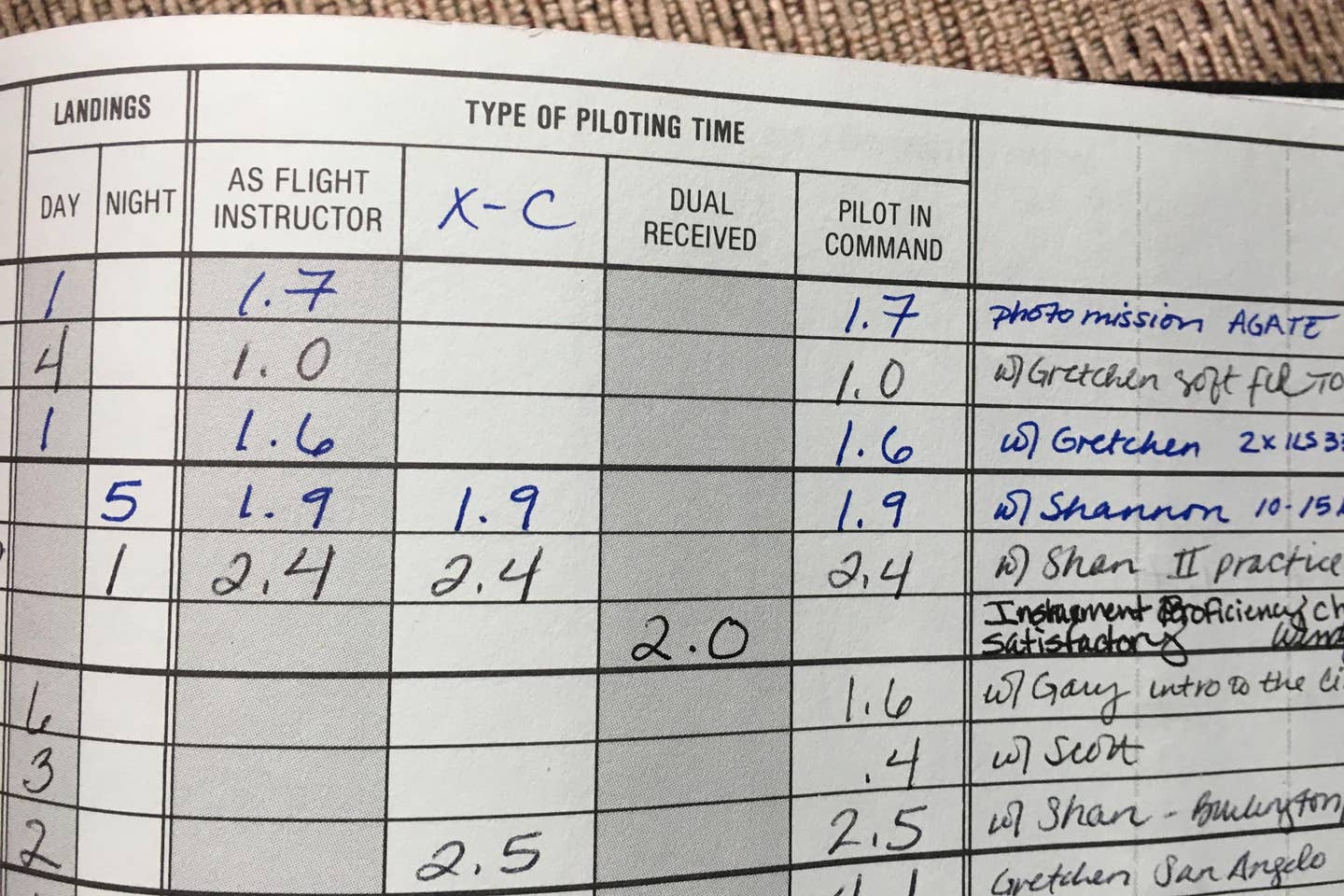
Your recency of experience as pilot in command is granted an extension under certain conditions of the SFAR in response to the COVID-19 outbreak. Julie Boatman
Note: The FAA has temporarily unpublished the SFAR to make updates. The new ruling will be published on May 4.
The FAA has published on April 29, 2020, a SFAR (special federal aviation regulation) regarding the extension of certain pilot and technician recency of experience, testing, and medical certification requirements in response to the international crisis triggered by the COVID-19 outbreak. The agency addresses in detail the specific areas of mitigation involved, and the actions and financial burdens expected from compliance—or that would be precipitated if the FAA took no action.
Most relevant to active pilots and instructors are the sections covering recency of experience requirements, flight testing, flight reviews, and medical certification requirements. In part, these are outlined below, but please reference the text of the SFAR for detailed guidance, and for areas of special operations, including those for technicians and IAs, and remote-piloted aircraft operators.
Flight reviews due during the period from March to June 2020 have up to a three-month extension. According to the SFAR: “The three calendar month extension applies to pilots who were current to act as PIC of an aircraft in March 2020 and whose flight review was due in March 2020 through June 2020. To mitigate any safety risk, the pilot must have logged at least 10 hours of PIC time within the twelve calendar months preceding the month the flight review was due. This flight time must be obtained in an aircraft for which that pilot is rated.” Pilots must complete an online seminar for WINGS credits sometime after January 2020 to meet the requirements of the extension.
Instrument pilot currency or recency of experience has been extended. The FAA has granted an additional three months to the normal six-month cycle, under certain provisions. “The FAA is extending the six calendar month requirement of §61.57(c)(1) by an additional three calendar months. This will enable a pilot to continue exercising instrument privileges, provided the pilot has performed the required tasks within the nine calendar months preceding the month of the flight, instead of the preceding six calendar months. To be eligible for the relief, a pilot will need to have some recent experience in instrument flight. More specifically, the FAA is requiring that the pilot have logged, in the preceding six calendar months, three instrument approaches in actual weather conditions, or under simulated conditions using a view-limiting device. Eligible pilots may exercise the relief in this SFAR through June 30, 2020.”
Private pilots conducting charity flights and other essential operations are permitted under certain criteria. The SFAR gives guidance that pilots must meet recency of experience within the past 12 months in order to qualify. “This relief applies to some operations conducted by pilots exercising private pilot privileges, provided the pilot has at least 500 hours of total time as a pilot of which 400 hours is as PIC and 50 of the PIC hours were accrued in the last 12 calendar months. The kinds of operations permitted are those that are: incidental to business or employment, in support of family medical needs or to transport essential goods for personal use, necessary to fly an aircraft to a location in order to meet a requirement of this chapter, or a flight to transport essential goods and/or medical supplies to support public health needs.”
Valid period for medical certificates has been extended. Because the medical exam is by necessity in-person and not an emergency or urgent examination, the FAA has lengthened the period during which a pilot can renew their certificate to the end of June 2020—if the pilot’s expiration month was as early as March 2020. In addition, pilots must still adhere—wisely—to the restriction from flying with a known, disqualifying medical issue. “The FAA notes that the provisions of this SFAR do not extend to the requirements of §61.53 regarding prohibition on operations during medical deficiency. These prohibitions remain critical for all pilots to observe, especially given the policy of emergency accommodation announced here and the health threat of COVID-19. Accordingly, the FAA emphasizes that under §61.53, no person who holds a medical certificate issued under 14 CFR part 67 may act as a required pilot flight crewmember while that person: (1) knows or has reason to know of any medical condition that would make the person unable to meet the requirements for the medical certificate necessary for the pilot operation; or (2) is taking medication or receiving other treatment for a medical condition that results in the person being unable to meet the requirements for the medical certificate necessary for the pilot operation.”
Pilot knowledge test expiration dates have been extended. Depending on the certification level, the results of a knowledge exam are generally valid for presentation at a practical test for a period of 24 calendar months—60 months in the case of the multiengine ATP. The FAA figures that roughly 60,000 pilots took knowledge exams whose valid period may be expiring during the period between March and May 2020. “To ensure these individuals are not penalized by having to take another knowledge test, the FAA is extending the validity of knowledge tests by a duration of three calendar months. Therefore, this SFAR will allow an individual who has a knowledge test expiring between March 2020 and June 2020 to present the expired knowledge test to show eligibility under §61.39(a)(1) to take a practical test for a certificate or rating issued under part 61 for an additional three calendar months.”

Subscribe to Our Newsletter
Get the latest FLYING stories delivered directly to your inbox






